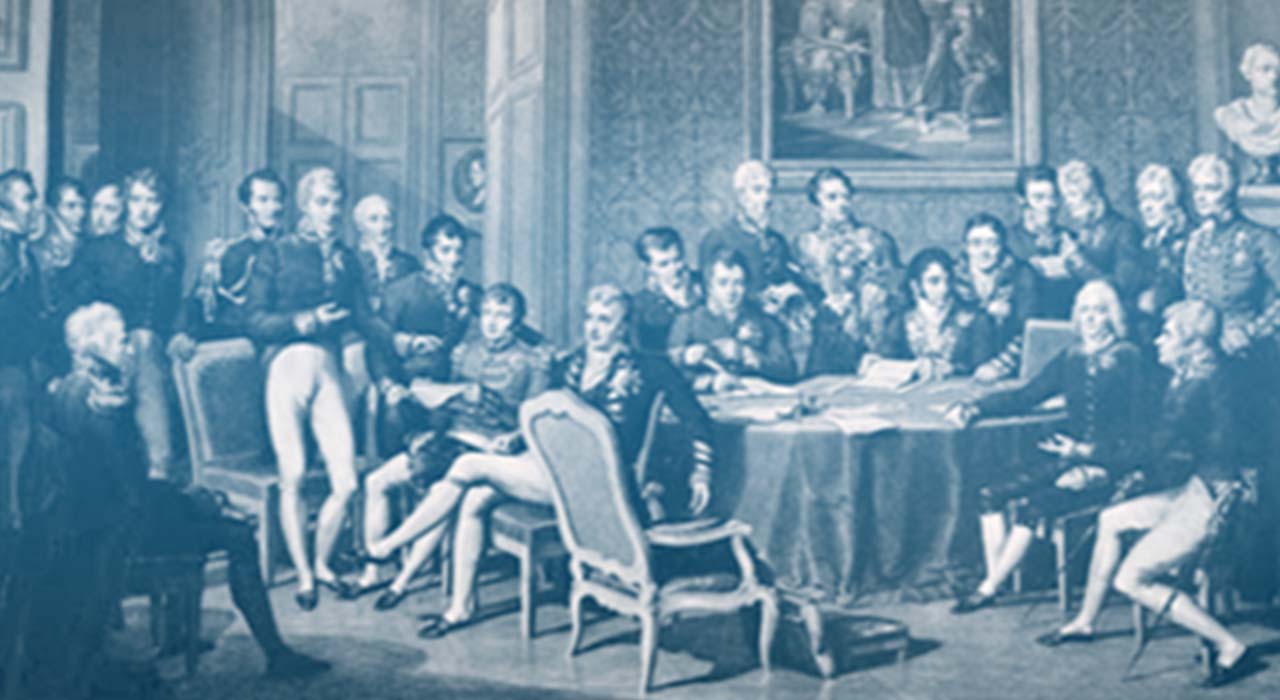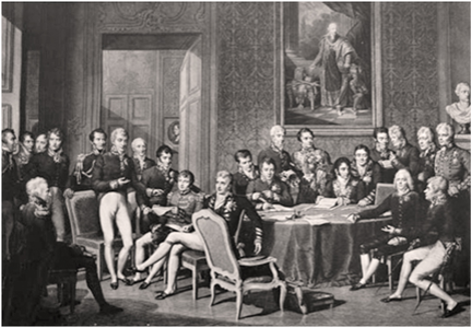
Systemic Evolution of States in the International Order
International LawLJ HowardBy L J Howard, PhD., LL.M.*, 2 February, 2024
An overview of the
Systemic Evolution of States in the International Order
How International Disputes and Conference Diplomacy and Politics Employ International Treaty Law

The mid-1600’s introduced the current international order of nation states and model of international law. The Peace of Westphalia (1648) concluded the 30 Years’ War and 100 Years’ War among a spectrum of princedoms, city states, religious orders, private armies and states in west-central Europe, gradually replaced by embryonic nation states. In 1625, the Dutch jurist, Hugo Grotius wrote De iure belli ac pacis. (On the Law of War and Peace), among the first texts of public international law concerning inter-state relations (the Netherlands were party to the wars). Subsequent wars advanced the international order; Queen Anne’s War (1702-1713) saw France, Great Britain and Spain fighting to control North America. However, conference diplomacy yielded more enduing outputs. The Congress of Vienna (1814-1815) marked the (i) conclusion of the Napoleonic Wars (1799-1815); (ii) ascendancy of nation-states negotiating peace accords, vice non-state actors’ having less standing; (iii) start of Pax Britannica (1815-1914).
The Paris Peace Conference (1919-1920) produced five accords impacting largely nation states: the Treaty of (i) Versailles (28 June 1919, imposed war reparations on Germany, reduced its territorial boundaries); (ii) Saint-Germain-en-Laye (10 September 1919; dismantled the Austro-Hungarian Empire; created nation states of Czechoslovakia and Yugoslavia); (iii) Neuilly-sur-Seine (27 November 1919; Bulgaria ceded land; lost access to Aegean Sea); (iv) Trianon (04 June 1920; reduced the Kingdom of Hungary’s territorial boundaries); (v) Sèvres (10 August 1920; Turkey lost Arab territories; Britain awarded governorship mandates for Palestine and Mesopotamia (Iraq) and France for Lebanon and Syria; incited Turkish civil war); subsequently, (vi) Treaty of Lausanne (24 July 1923); settled issues in the unratified Treaty of Sèvres; set territorial borers of Turkey). The Conference yielded the Covenant of the League of Nations, the first international organization of scale to hold international legal personality, previously held only by states.
Seven international conferences: (i) St. James Palace, London (12 June 1941; five commonwealth states and eight governments in exile); (ii) HMS Prince of Wales, Newfoundland (12 August 1941; UK, USA); (iii) Moscow (18 October – 01 November 1943; China, UK, USA, USSR); (iv) Tehran (28 November 1943; UK, USA, USSR) (v) Yalta, Russia (04 – 11 February 1945; UK, USA, USSR); (vi) Dumbarton Oaks (21 August – 28 September 1944; UK, USA, USSR;, and 29 September – 07 October 1944; China, UK, USA); (vii) San Francisco (12 April 1945, fifty states attending) together yielded the Charter of the United Nations. Unlike the League, the UN is inclusive of all states and advancing a comprehensive socio-economic security agenda. Such interstate conference diplomacy informs development of treaty laws and underlying law of treaties.
The inter-war declaratory Treaty of Monte Video (1936) codifies four of the five conditions for statehood (territory, population, system of government, international legal personality); recognition as a state by other states is a question of customary law. The post 1945 decades of de-colonization saw the right of a people to political self-determination become expressed in the International Covenant on Civil and Political Rights (1966); an independent Kosovo and Kurdistan are among current aspirants seeking statehood.
Conference diplomacy and treaty law yield more sustainable outcomes in statehood than armed conflict.
* President, Royal Alberta United Services Institute
